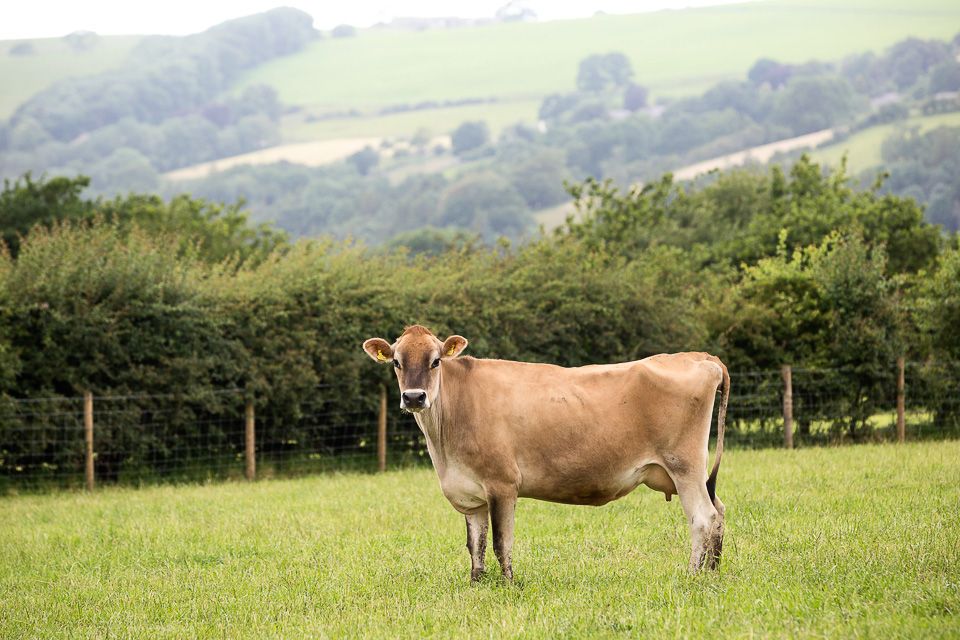
Ruminating on seaweed
There are numerous reasons why greenhouse gases are increasing and accelerating global warming. Deforestation in Brazil and Indonesia produces more emissions than the world’s cars, while the burning of fossil fuels by giant oil and gas firms accounts for one third of global emissions.
Around 14 per cent of global greenhouse gas emissions can be attributed to agriculture, according to the Food and Agriculture Organization, with roughly 40 per cent of those emissions coming from methane released by cattle (although estimates do vary).
So recent news saying scientists have discovered that methane emissions can be reduced by feeding cows seaweed, which reduces the methane emitted by their farts and burps, offers a ray of hope. Initial studies found that adding a small amount of seaweed, which contains a compound called bromoform, to the livestock’s overall feed disrupted the enzymes that produce methane in the cow’s gut.
However, one study revealed a more conflicting picture. Not only would producing enough seaweed for the world’s 1.5 billion cattle be impossible, research found, but the cows’ guts (microbiomes) seemed to adapt and reduce the effectiveness of a seaweed additive.
Scientists were, however, impressed by the initial results and, despite the need for further research, trials have begun on livestock in the US, Australia and New Zealand.
Dr Gordon McDougall, senior research scientist of environmental and biochemical sciences at the James Hutton Institute, in Dundee, is not yet at the stage to feed any seaweed to cattle but has conducted tests on a “staggering” amount of varieties on the Scottish coast. He says that seaweed may have other ecological advantages if fed to sheep or cows.

“[Reducing methane] is definitely something we are interested in, but at the moment it’s not our prime consideration,” he says. “One of the first things we are interested in is protein content. It’s relatively well known that various seaweeds have a relatively high content of protein. Therefore, one of the ideas we were toying with was the idea that you could include up to a certain level in animal feed and then reduce the amount of things like soya bean.”
This means instead of shipping in soya from places like Brazil, where the crop contributes to deforestation, food additives like seaweed could be grown locally, reducing the carbon footprint and reinvigorating local industry.
“Also, there’s a supply issue,” McDougall adds. “[If farmers] are dependent on obtaining the soya bean from somewhere like Brazil and if that supply was turned off then they’re in trouble finding something with that protein level.”

Replacing an imported feed with a local ingredient would impress Orcadian cattle farmer Steven Sanderson, who gives a little soya annually to his cows when they are pregnant, which makes their colostrum richer and improves their calves’ health.
“It gives the calves a better start in life.” he says. “I’m surrounded by seaweed and if the product was there, I’ll be happy to pay for it.”
Dr Katerina Theodoridou, lecturer in farm animal nutrition at the Institute for Global Food Security which is part of Queen's University Belfast, and her colleague Mairead Campbell, are also in the lab stage of testing seaweed as an additive. They have found evidence that there is a high reduction in methane in lab tests, and also agree that replacing soya as a protein is a key concern.
“The other problem nowadays with ruminant feeding is protein is poorly utilised by ruminants,” says Theodoridou. “The animals are not receiving all the protein that is needed. And if we have protein waste, we have a lot of ammonia waste in the faeces or urine of the animal which is bad for the environment.”
Reducing ammonia pollution through giving seaweed as an additive could have far-reaching consequences for the livestock industry, but Theodoridou points out that the research is still at the rudimentary stage.
“The reason seaweed has the potential to reduce ammonia and methane emissions is because in seaweed there are bioactive compounds called phlorotannins,” she adds. “These compounds have different mechanisms by which they can reduce methane and ammonia. And this is why we would like to investigate it further.”

Seaweed might also not be the only additive that can reduce carbon emissions. There is a new trial looking at how charcoal (or biochar) can reduce methane emissions, while another additive that is already on the market has yielded results for a UK farmer: Mootral.
Joe Towers, of Brades Farm, runs a family dairy firm in the Lune Valley in Lancashire, which milks 380 cows a day on 400 acres, supplying discerning baristas interested in high protein milk. After seeing the first headlines about seaweed research in 2017, he applied for a Nuffield scholarship and began working with biotech firm Mootral. Instead of seaweed, Mootral is a mix of garlic and citrus, which when added to Towers’ cattle feed reduced his cows’ methane emissions over a period of time.
“Science has been pursuing a food additive to reduce methane for decades now,” says Towers. “The perennial issue is that you get this short-term effect and the microbiome of the cow adapts and responds and, therefore, the impact tails off. Mootral seems to have overcome that problem.
"It was fed on our farm for a three-month period with testing done throughout that period and there was not a tail-off, and that is consistent with the research farms used prior to our farm,” he says, adding that the additive has had further advantages in discouraging flies during hot weather.
In the UK, the National Farmer’s Union (NFU)’s pledge to reach net zero emissions by 2040 includes a range of techniques including precision application of fertilisers, as well as feed additives.
It's the start of the journey, but research into feeding ruminants with seaweed, charcoal or garlic could help farmers cut their emissions, improve animal health and have far-reaching consequences for the global livestock industry.
Read the full article on the Wicked Leeks website here
